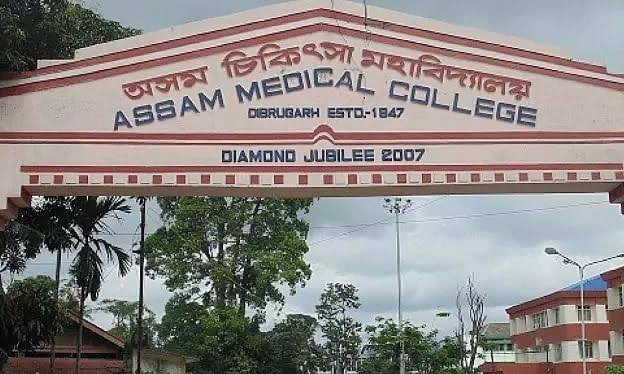
A 47-year-old man died of mucormycosis, commonly known as black fungus, at the Assam Medical College and Hospital (AMCH) here on Wednesday (June 30), becoming the first death due to the fungal infection in upper Assam.
Confirming the death, AMCH principal and chief superintendent Dr Sanjeeb Kakati on Thursday said that the post-covid patient who belong to Lakhimpur district was admitted to the AMCH on June 15 complaining of respiratory issue and severe headache. He was also a diabetic with very high blood sugar levels. Black fungus, a serious fungal infection, is being reported mostly among those patients who are suffering from diabetes or immuno-compromised as a post-covid complication.
“This is the first case of death from black fungus at the AMCH. Unfortunately we could not save the life of the patient despite our best efforts. We lost the patient who was on special care on Wednesday afternoon after a valiant 15-day fight. The entire team of dedicated doctors from the department of Medicine, ENT, Microbiology, Ophthalmology, Cardiology and Radiology fought very hard to salvage him from the deadly disease. The ENT doctors carried out and extensive 6-hour long operation successfully. But he finally succumbed to sepsis and shock,” Dr Sanjeeb Kakati said.
Significantly, it was the first case of black fungus detected at the Assam Medical College and Hospital in Dibrugarh and the overall third such case in the state. Earlier on May 20, a 27-year old covid-recovered man from Nagaon district had died of black fungus at a private hospital in Guwahati. Similarly, on May 29, a 42-year old man admitted at the Silchar Medical College and Hospital for post-covid issues was found to be infected by the black fungus.
Earlier, the state government had declared black fungus a notifiable disease, making it mandatory for healthcare units to report its cases to government authorities. As per the SOP, all hospitals must set up a dedicated ward for black fungus that has a separate waste disposal system. According to the government order, a multi-speciality team including specialists in oro-facial maxillary, ENT, neurosurgery, ophthalmology and plastic surgery should be ready for surgical procedures on affected patients.
Mucormycosis or black fungus most commonly manifests in the nose and sinuses, but from there can spread to the eyes, lungs and brain. It also affects other organs including the skin. Patients who cannot maintain hygiene due to several reasons like being on oxygen are at risk from the black fungus. It can also be caused by misuse of steroids and antibiotics in covid treatment as they impair the ability to fight fungal infections. It can also occur in patients with poorly controlled diabetes where tissue is damaged.

